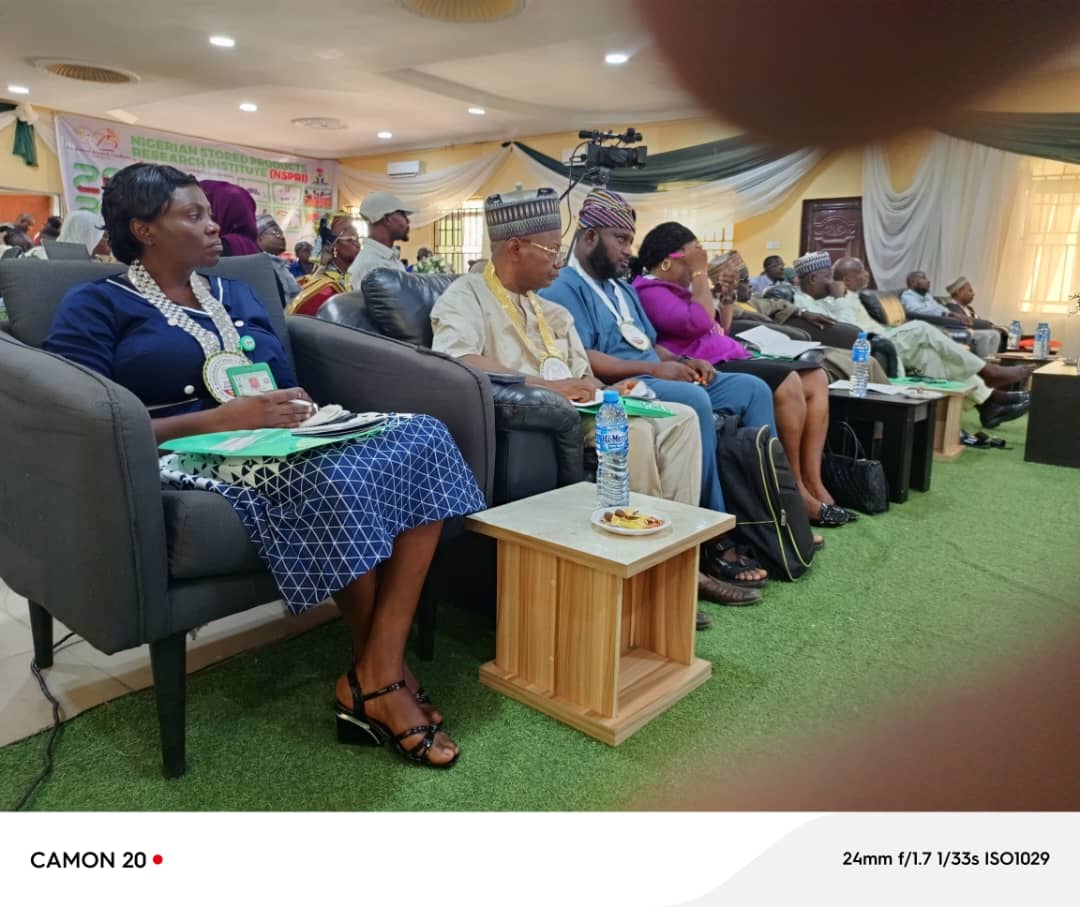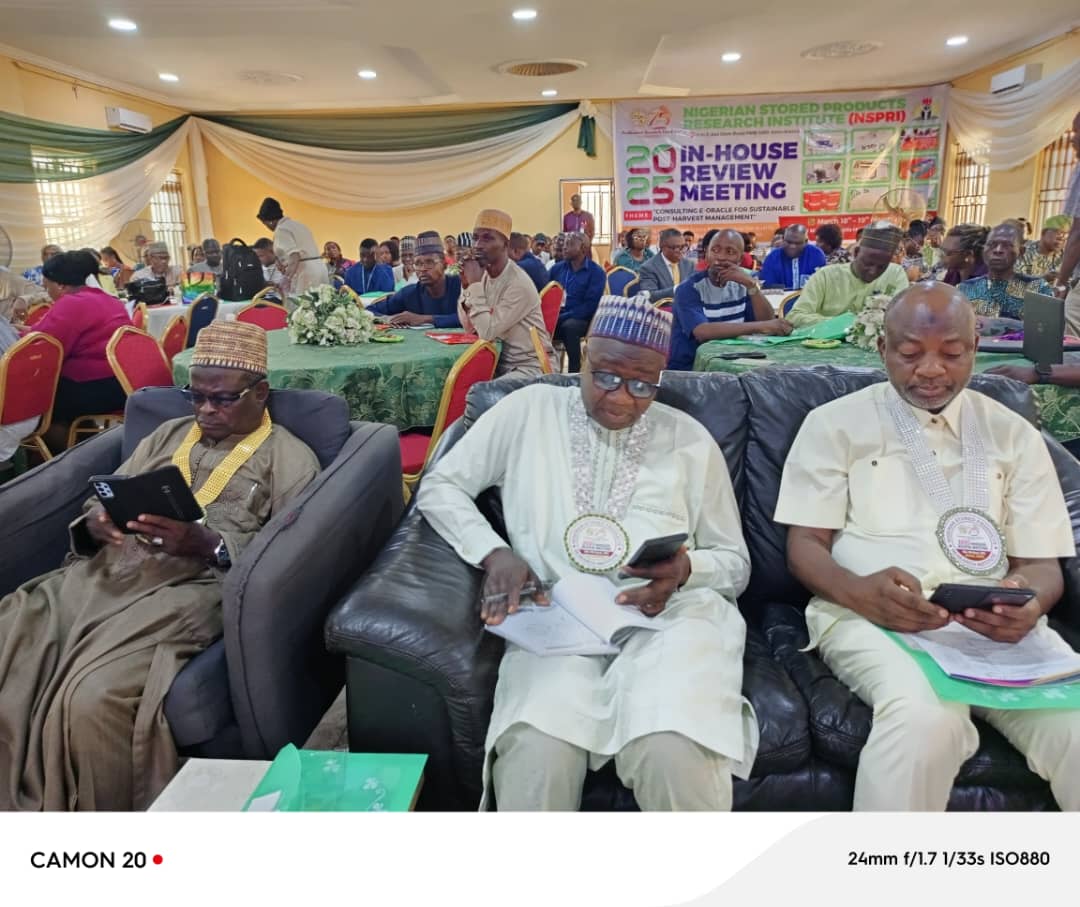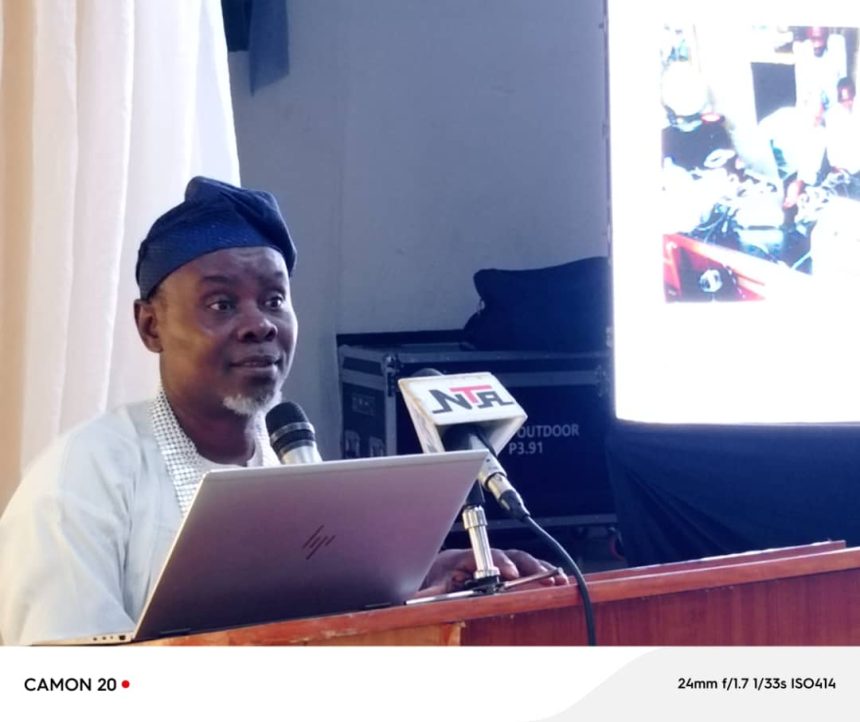*Says over 40 percent of food produced in Nigeria is lost due to poor storage
From Taiye Joseph, Ilorin
An agricultural expert, Prof. Abdulganiy Raji, has called for the adoption of digital technology to tackle post-harvest losses in Nigeria, emphasising the need for farmers’ enlightenment and policy implementation.

Speaking at the Nigerian Stored Products Research Institute (NSPRI), 2025 in-house technical review meeting and productivity award in Ilorin, Prof. Raji, described post-harvest losses as a major threat to food security, noting that over 40 percent of food produced in Nigeria is lost due to poor storage, handling, and transportation.
“The food losses we are experiencing in Nigeria are worrisome. If we adopt the use of E-oracle, many of the losses associated with transportation and handling will be considerably reduced because monitoring and decision-making can be done remotely,” he said.

Explaining the concept of E-oracle, the professor of Agriculture and Environmental Engineering from the University of Ibadan, said it involves integrating various technological solutions into post-harvest management to track and maintain food quality from the farm to the consumer.
“When we apply this technology, we will be able to monitor the quality of our food right from the farm, to the market, and up to the dining table. Our research will also align with international standards, ensuring global acceptance of our agricultural innovations,” he added.
Prof. Raji stressed the need for continuous training of agricultural extension workers to effectively introduce these technologies to farmers at the grassroots. He also warned that post-harvest losses contribute to climate change, as methane emissions from spoilt agricultural produce impact the ozone layer.
Speaking at the event, the Executive Director of NSPRI, Professor Lateef Sanni, highlighted the importance of technology and digitisation in boosting agricultural productivity and mitigating climate impacts.
“The theme of this meeting is timely, considering the role of technology in managing post-harvest losses, improving farmers’ income, and ensuring food and nutrition security,” Prof. Sanni said.
He noted that NSPRI had made significant progress in agricultural research over the past two years, forging partnerships with universities, state governments, and private organizations.
According to him, these collaborations have resulted in the signing of over 15 Memoranda of Understanding (MoUs), strengthening research capacity and expanding the institute’s reach in technological innovations.
“These collaborations have significantly enhanced the capacity of our research personnel through continuous training and retraining. They have also helped us leverage industry partnerships to expand research innovations and technological development,” Prof. Sanni stated.
Experts at the event emphasised that embracing modern technology in post-harvest management would not only reduce food wastage but also improve Nigeria’s food security and global competitiveness in agricultural research.







